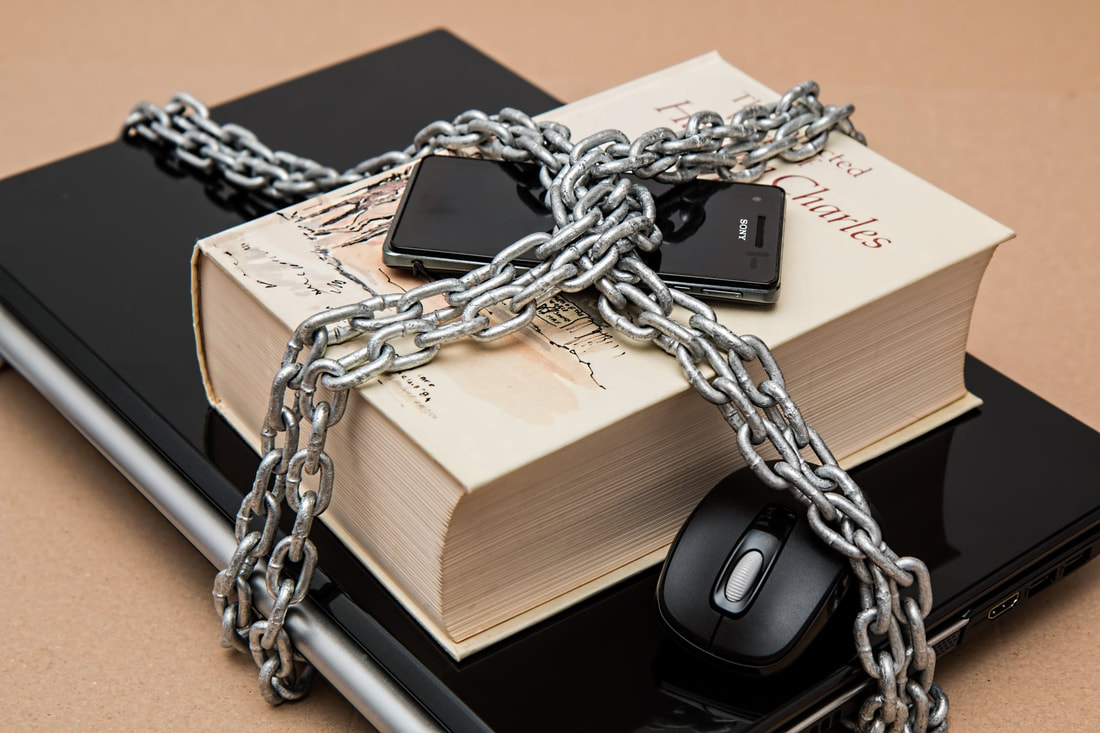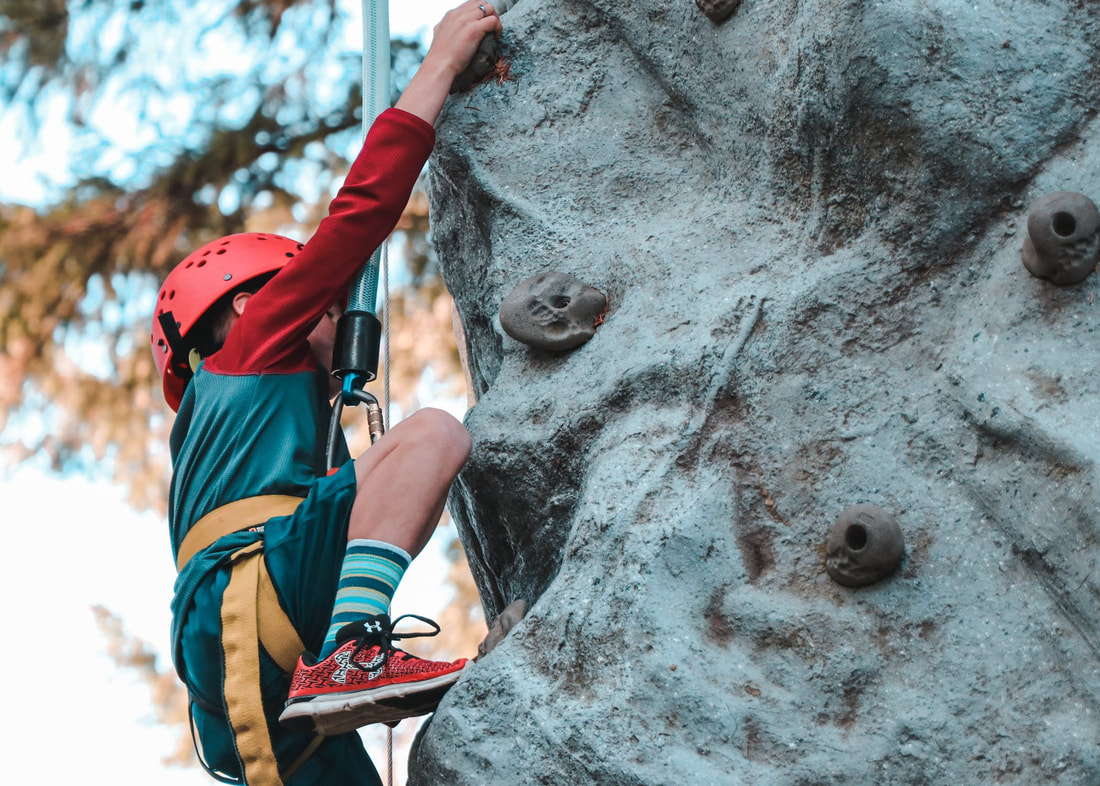|
I know it’s been a year longer than we had hoped, but now, despite the current global issues, which reminds me of the Billy Joel song, ‘We Didn’t Start The Fire’, we’re back for season 2 of the Xperiential Education podcast!
This season, we cover all sorts of great programs from art, to science, to risk management, to outdoor ed, to a really wonderful student-led medical program and a few things in between. The depth and breadth of the podcast and our guests, highlights how important it is for students today to learn to be adaptable problem solvers. Season 2 is brought to you by Xcursion Risk Management, for all of your risk management training and software needs for running great experiential education programs. https://training.xcursion.com.au/ https://www.xcursion.com.au For more info, guest suggestions and other feedback visit: https://xperiential.education/
0 Comments
Everyone loves a good drama. At work, the gossip around who’s dating who is far more interesting than doing your job. Newspapers and media outlets rely on bad news to sell papers or in digital terms create ‘click bait’ so you click on the article. Often, in both cases, the headlines don’t match the actual story because if they did, people wouldn’t read them. It’s far easier to get someone to pay for a paper with the headline “Virus Outbreak! 95 Year old Dead and Infections on the Rise.” Rather than, “55,000 people have already recovered from the Virus many only experienced mild illness.” This is not to understate the issue at hand. Yes it is concerning and yes we need to do something about this to slow and/or stop the spread. However, the impact this has had on outdoor education alone is massive, with countless school cutting all programs, no matter how remote or disconnected they are from the fact that children are not really being affected. The level of perceived risk is through the roof, the level of actual risk for most people remains relatively low. I saw this again on the news last night. ¾ of the whole news was about the ‘massive’ jump in cases. The ‘sick and elderly dying,’ the panic buying, the dark days ahead and all of this negative crap which gives the average person the impression that the zombie apocalypse is here. For most people, given the popularity of the show, the Walking Dead, they’re reacting as if a zombie virus or Ebola has gotten loose and is wiping out 80-90% of the healthy population. The fact is, this couldn’t be further from the truth. The reality is that fear and panic are driving this and hyped up by the media, is driving the world economy into recession. Ironically, like a fine print disclaimer at the bottom of some ludicrous advert, one of the later stories in the news was basically, ‘Oh by the way… if you wash your hands, don’t touch your face and mouth after contacts and don’t have prolonged close contact with an infected person, the risk of catching this is really low. The number of cases of this in the country and around the world are testament to this. Added to this, most people are not dying. They’re experiencing mild ‘flu-like’ conditions and recovering. What’s the problem? The problem is that everyone loves the drama and focuses on the negative side of the drama, rather than looking at the whole problem in context. The world is not going to be completely overrun and shut-down by this virus. It’s not wiping out the next generation of young people and healthy people, but mild viruses which don’t kill lots of people, don’t make good news stories. On 30th Oct 1938, the radio show ‘War of the Worlds’, by Orson Welles first aired. This sparked wide-spread panic, with people thinking they were being attacked by aliens. Now we might laugh at this now, as we know it’s a story, but at the time, that felt so real as it was coming through their airwaves. The media has a lot to answer for in this. They’re far from reporting the facts and this has been so over-editorialised and hyped up that the fear and panic they’ve put into the community could have a really long-term negative effect. This will all blow over given time. However, how many businesses are going to be wiped out? How many fights are going to break out over nothing? How much panic is ok before the media is taken to task over this, which, to be honest, they won’t be. If you look back in history, the world has survived many things. However, fear and panic is so contagious that the impact it has on a mild crisis can and does turn everything into a major catastrophe. We’re experiencing runs on banks, stampedes in stadiums, riots over food and supplies, when the supplies aren’t at risk. The timeless words of Rudyard Kipling’s ‘If’ echo loudly through this current world crisis and we should always remember: If you can keep your head when all about you Are losing theirs and blaming it on you, If you can trust yourself when all men doubt you, But make allowance for their doubting too; …. Yours is the Earth and everything that’s in it, And—which is more—you’ll be a Man, my son! The full poem can be found here:
https://www.poetryfoundation.org/poems/46473/if--- It is time for us to take stock and see this for what it is. It is not the world ending pandemic that will turn everyone inside out. It is a virus, which spreads quickly through close contact and poor hygiene and the effects of which are generally mild with most people recovering. Let’s not lose our heads. The world has gone through worse and there will be worse to come, but standing firm when everyone else is losing it, is so important for the world right now. We need more people to have level heads and respond to this current issue accordingly. For some stats on the current virus check out: https://informationisbeautiful.net/visualizations/covid-19-coronavirus-infographic-datapack/ For some crucial tips on surviving a zombie apocalypse check out: https://www.youtube.com/watch?v=JyUbQTEFuss Ok, so I’ve been watching all of the hysteria over the Coronavirus. Whilst this is no doubt a highly infectious virus which has spread quite rapidly, we also should put this into perspective as to the effect of this virus. Most sufferers are not dying from this. Most are recovering quite well, as with any other cold or flu. There is a mortality rate currently between 1% and 4%, depending on country, age and healthcare standards. In terms of a monumental threat to life as we know it, it’s really not that bad.
Therefore, why are so many people going crazy? Why are the supermarket aisles stripped of toilet paper and tissues? Why are people having punch-ups over things which you could live without? It’s weird, isn’t it. It often takes a crisis for us to remember how stupid some people are. The whole notion of people being able to think for themselves seems to go out the window and is replaced with this insane ‘mob mentality’. This fear and anxiety is far more contagious and dangerous than the virus itself, as people then turn on each other for no real reason. The media hasn’t helped either. Whilst it’s good that it’s being reported, as are all bad stories, the media just latch on (kinda virus-like) and suck the life out of the story. I saw one media outlet which I won’t name, (but they have a track record of idiotic headlines and stories written and aimed at angry bogan 10 year olds). That organisation is running an infection counter on its website, as if it’s some sort of doomsday clock. I think this is horrendously irresponsible and only fuels the fear of those toilet paper toting hoarders. From a risk management point of view, I understand the hand sanitiser, even the paracetamol to fight off the infection, but what the hell are you going to do with car-loads of toilet paper? We don’t import it, so it’s not as if it’s going to be stopped and be sitting on a dock somewhere. If I were going to go hysterical and start hoarding things, I’d be going for tinned food, bottled water, some fuel, gin, tonic, limes and a few good books to read. The TP is really not even on the list. So why is this the thing for which people have rushed out? To be honest, I have no idea! It really makes no sense at all, but it’s fascinating behaviour to watch how irrational people can be when fear sweeps over them. Whilst in the past we would talk about the fight or flight mechanism we have built into us, perhaps that needs to be extended to the fight, flight and flush. Whilst the coronavirus is a concern, as is any communicable disease which can kill people, the far more dangerous thing at this point in time is the fear and anxiety which is being fuelled by media and mob behaviour. Before we all rush out, knock over a few old ladies in the desperate effort to buy a roll of toilet paper, take stock of the reality of the situation. The virus can be prevented and avoided by social distance and ensuring you have good hygiene and wash your hands properly. Doing this will help stop the spread of this virus. Here’s a great video from the WHO about that exact thing: https://openwho.org/courses/introduction-to-ncov This year sees the banning of mobile phones in many Australian schools. This is an initiative which is something that everyone should welcome with excitement. Whilst some technology is beneficial, the fact is that we’re seeing a massive increase in mental health issues, many of which can be linked with social media addiction and a complete disconnect from reality in which young people growing up with smart devices can find themselves.
Whilst many bleeding heart civil libertarians and anxious parents might be wailing and decrying the ban as over the top, the fact is that children don’t need a phone at school. For that matter, they really don’t need a phone at all. I’ve written a number of articles around this and the problems that phones are causing, of which we’re only just starting to see the impact. In terms of taking risks, I recently wrote about finding the one reasons out of ten for doing something versus the ten reasons for not doing something. I think the same is relevant to this problem. However, the opposite seems to be true of the decision-making process. Parents hold onto the one reason for their child to have a phone and that’s ‘in case of emergency.’ However, how often is there an emergency where there’s nobody else around to ask for help? If we then delved into the ten reasons why you shouldn’t give your child a phone, we would find the potential negative impact to be huge versus this supposed ‘emergency’ which is most likely not going to happen. However, without going into all the ins and outs of what might or might not be reasons or justifications for giving a child a phone, let’s look at what’s been the impact at school. Peer-pressure! This is probably the number one driver of why children end up with phones. ‘Because everyone else has one’. This is not a great reason in itself, but it massively fuels the peer pressure which children face each day. One of the main impacts at school however, is the level of distraction that a smart device causes and the subsequent lowering of children’s attention spans. If you’re trying to engage students in learning, then having something which distracts them and constantly provides them with a dopamine hit versus your maths lesson, you’re not winning anytime soon. In general terms, it takes fifteen minutes for you to get into an activity. Each distraction or change of task, then takes another fifteen minutes for you to get back into that activity. Hence, in an hour lesson, you don’t need too many distractions to have wasted an entire hour. There’s the social impact. If break time is filled with time spent playing games on the phone or engaged on social media, this significantly reduces the child’s ability to develop friendships and meaningful relationships with real people. All they see is a filtered view of the world and this filtered view is toxic and destructive. From my experience, often children will claim they’re talking with or messaging their parents during break times so it’s ‘ok.’ This firstly is a load of crap, as most teenagers wouldn’t be constantly messaging their parents and secondly, if they are, their parents need a slap across the face for being so stupid. Stop trying to live your life through your children. If you have nothing else better to do than message your kids all day, then go and get a job, or volunteer somewhere. There’s lots of need in the community, so make yourself useful! Having said that, most parents don’t do this and the children are just making it up as an excuse. The fact remains however, that it’s a disconnect with the environment, space and purpose of education. For those people who say, well it’s part of life now, then I think they’re missing the point as to how damaging this part of life is. In the 19th century, opium was a widespread part of life. That was not something which was a wonderful progression in the development of humanity, neither is this. Phones and technology are tools to be used to benefit communications, work and create some great efficiencies. However, at the same time, like firearms, they’re a dangerous tool in untrained hands and that’s the reality of this technology with children. A phone manipulates and controls their behaviours, dominates their attention and rescues their ability to cope with the real world. Removing the phone, not only from schools, but from children in general until they have the skills, maturity and abilities to use it as a tool and not have it use them as a tool, is vitally important to their long-term health and well-being. The Australian school phone ban is great! It’s a big step towards modernising education and making it relevant in the 21st century. Let’s hope this ban expands to all schools in Australia and across the world. If you can’t go six hours without a phone, then you have far more problems than that supposed ‘emergency’ for which the phone was originally intended. In life, we can always come up with ten reasons for not doing something. The negative talk of most people determines why something shouldn’t be done more often than why it should be done. In general, people don’t like to take risks and this becomes a self-fulfilling prophecy.
However, taking risks is how we grow and develop. If we’re so risk averse that we’re not willing to try anything new, then this really doesn’t allow us to reach our potential on any level. Yet when most people encounter something new or different, they will run through in their minds all the reasons why it won’t work, rather than all the reasons why it will. This is common at work and in people’s social lives. The comfort of knowing the outcome is a wonderful thing to be able to hold onto as it gives us certainty, which is always comfortable to have. However, this certainty can often hold us back from interesting and exciting experiences. One really good example of this is abseiling. Over the years, despite this being a really safe activity to do, abseilling has been the most challenging activity I’ve seen for many students and teachers alike. You can see them talking themselves down, even before you get started. Some people won’t even put on a harness because they’re afraid of heights, rock falls, ropes breaking, slipping back, falling off the cliff, being dropped off the cliff, the rope being cut, the anchor giving way, the double anchor giving way, looking stupid or afraid whilst on the rope. Despite this huge bunch of negative talk, what’s the one reason you should forget all of this and just go for it? Now I can’t answer this for anyone, but what’s important is that we encourage people we’re working with to find the one reason for doing something. This might not be easy, as the easiest thing to often do is nothing, but where does that get us? It disempowers people and means they will never be able to live up to their potential. The irony of all this is that often by not doing anything, or taking any risks, people end up with a false sense of what real risks are and often the risk of doing nothing is far greater than the risk of giving something a go. When you’re setting up an activity which might have a high-level of perceived risk and a high-level of resistance from participants, why not chat with them about the benefits of taking a risk on something. Use a tangible example of that as well, to ensure they can see how and why finding the one reason to do something, versus the ten reasons not to. This is massively beneficial to their own personal development and growth. There will always be plenty of reasons not to do something in life, but if nobody took any sort of risk, then we’d still be living in caves. Even if something doesn’t work out the way we thought it would, taking that risk can mean we end up having a wonderful and unexpected experience and learn and grow from this. This is followed by other experiences we have as a result of finding that one reason why, versus the ten reasons why not. Take a risk today! Try something new and different and surprise yourself as to how wonderful that new experience can be. |
Categories
All
Archives
April 2021
|





 RSS Feed
RSS Feed